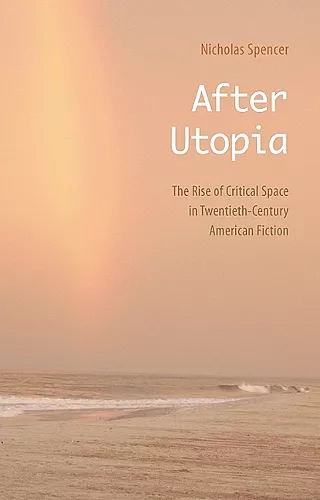After Utopia
The Rise of Critical Space in Twentieth-Century American Fiction
Format:Paperback
Publisher:University of Nebraska Press
Published:1st Dec '08
Currently unavailable, and unfortunately no date known when it will be back

A brilliant and unique use of the idea of "critical space" to examine the function and continual transformation of spatiality in American fiction of the twentieth century
By developing the concept of critical space, this title presents a fresh genealogy of twentieth-century American fiction. It argues that the radical American fiction of Jack London, Upton Sinclair, John Dos Passos, and Josephine Herbst re-imagines the spatial concerns of late nineteenth-century utopian American texts.By developing the concept of critical space, After Utopia presents a new genealogy of twentieth-century American fiction. Nicholas Spencer argues that the radical American fiction of Jack London, Upton Sinclair, John Dos Passos, and Josephine Herbst reimagines the spatial concerns of late nineteenth-century utopian American texts. Instead of fully imagined utopian societies, such fiction depicts localized utopian spaces that provide essential support for the models of history on which these authors focus. In the midcentury novels of Mary McCarthy and Paul Goodman and the late twentieth-century fiction of Thomas Pynchon, William Gaddis, Joan Didion, and Don DeLillo, narratives of social space become decreasingly utopian and increasingly critical. The highly varied "critical space" of such texts attains a position similar to that enjoyed by representations of historical transformation in early twentieth-century radical American fiction. After Utopia finds that central aspects of postmodern American novels derive from the overtly political narratives of London, Sinclair, Dos Passos, and Herbst.
Spencer focuses on distinct moments in the rise of critical space during the past century and relates them to the writing of Georg Lukács, Ernst Bloch, Antonio Gramsci, Hannah Arendt, Henri Lefebvre, Gilles Deleuze and Félix Guattari, and Paul Virilio. The systematic and genealogical encounter between critical theory and American fiction reveals close parallels between and original analyses of these two areas of twentieth-century cultural discourse.
ISBN: 9780803220768
Dimensions: unknown
Weight: 454g
276 pages